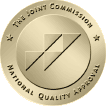Groshong Catheter Guidelines
The following information is intended to guide you through your post-op recovery:
Medications:
- You should expect some mild discomfort after your surgery. You will likely require some acetaminophen or ibuprofen to control this. It is important to take your pain medicine prior to your pain becoming intense in severity
Incision Care:
- You will leave the hospital with a dressing over your site. The dressing will need to be changed within 48 hours after your surgery. If you are unable to change your dressing, arrangement will need to be made through our office. We can help with arrangements if you have the need.
- You must observe your incision and Groshong exit site daily for signs or symptoms of infection. These signs would include: increased swelling, redness or smelly wound drainage. It is normal to have some swelling and bruising around your incision.
Bathing and Showering:
- You may not shower for 2 weeks after your surgery.
Driving:
- You may drive when you no longer are taking narcotic pain medications and you feel you can quickly respond to situations that will not place others in jeopardy.
Follow-up Appointments:
- You will need to return to the office for a follow-up visit usually within 2 weeks after your surgery. Please make sure you have your appointment scheduled.
- It is very important that you and a family member attend one of the Groshong Care classes that our office provides. This class should be completed before your surgery o within 48 hours after your surgery. Please check with one of the nurses in our office to schedule a class time.
- It is very important that you read through the handouts with instructions for Groshong catheter care entirely. Your understanding of the do’s and don’ts in relationship to your catheter is critical.
Safety Concerns:
- You should always have a cap on the end of your catheter, and the cap should be changed weekly.
- Your catheter must be flushed with saline weekly or whenever blood is visible within the catheter. If blood is visible and you are a patient at the WVCC, they would prefer that you call the WVCC staff for instructions prior to the flushing. NOTE: If you have a Hickman, Broviac, or Cook catheter, you will need to flush the catheter every day with a heparin solution.
- If there is greater than two inches of air in the catheter you should notify the office for instructions.
- Your catheter dressing must be changed regularly as ordered by your doctors.
- If there is a break, leak, or accidental cut in the line this would need to be fixed promptly. First, you will need to fold over the end of the catheter and cover it with a gauze dressing and secure that in place.
- If there are signs of infection at you catheter site within the first four weeks after your surgery you should call our office to notify the staff.
Problems to Observe For:
Call the office for the following:
- Fever >101.0
- Uncontrolled pain. That is on a scale of 1-10 (10 being the worst pain imaginable) your pain is a level 7 or above.
- Nausea and / or vomiting that continue for 12-24 hours.
- Diarrhea that continues for 12-24 hours.
- Signs of a wound infection.
- Chest pain or difficulty breathing.
- Your incision separates or opens up.
If you have further questions after reading this handout, the office is open from 9:00AM to 5:00PM Monday through Friday. For emergencies after office hours, the answering service will be available when you call the office number.




